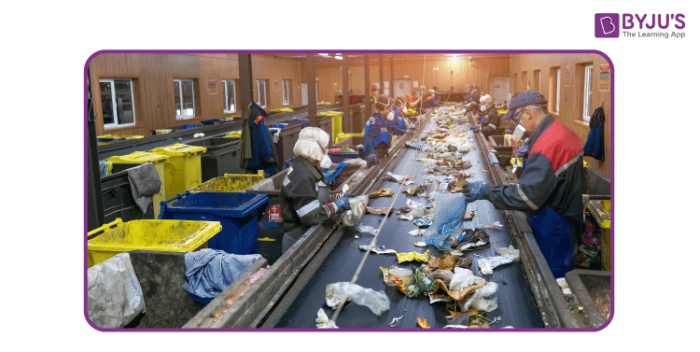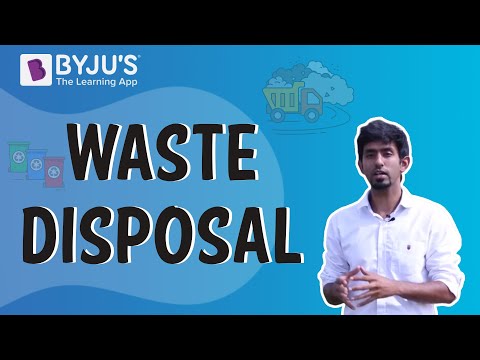Introduction
Recycling waste products is very important as it helps in processing waste or used products into useful or new products. Recycling also helps in controlling air, water and land pollution. It uses less energy. There are a number of items that can be recycled. For e.g. Paper, plastic, glass, etc.
Table of Contents
Recycling of Paper
Today over half of the total paper used by humans is collected and recycled. Paper is considered to be the major component of solid waste and makes 50% of the garbage in landfills. Paper is recycled by taking it to the recycling plant where it is separated and then the separated paper is cleaned and washed with soap to break it down.

After breaking down, it is exposed to heat and after some time it breaks down into cellulose. Recycling is an essential method to minimise waste accumulation and reduce pollution. We can recycle old newspapers, notebooks and used envelopes but paper contaminated with food, carbon paper, and stickers cannot be recycled. This method is an excellent and cost-efficient way of conserving the environment and saving energy.
Recycling of Plastics
Recycling plastic is very important. If plastics are not recycled at the proper time, then they get mixed with other chemicals or materials and hence become more difficult to recycle and become a source of pollution. Plastics are non-biodegradable and they do not get decomposed by microbial action. To avoid this, it is important to use biopolymers or biodegradable polymers.
Benefits of Waste Recycling
-
- Recycling helps in the protection of the environment: Recycling helps in reducing air, land, water and soil pollution.
- Recycling helps in conserving natural resources
- Recycling helps in saving energy: If not recycled it takes more energy to produce items with raw materials and as a result price of products can now be cheap and energy efficient.
Waste Disposal

To follow more about recycling waste products, download Byju’s-the learning app.

Comments